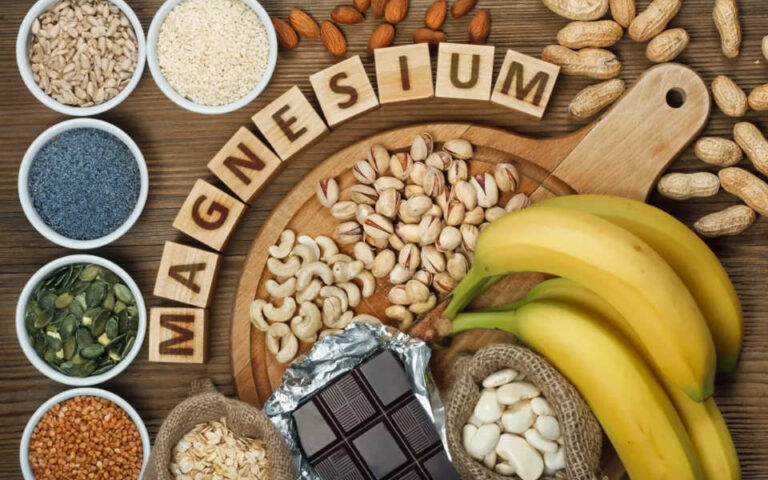If it is not being flaunted on social media, then it is being enjoyed in different varieties. The Avocado train is one of the most popular sustainable foods that have gained popularity due to its amazing versatility.
Avocados have many different types of nutritional, cosmetic, and health benefits. It is an effective natural cosmetic agent that has advantages in rapid skin absorption and can even be used as a natural sunscreen protectant.
As a result of incorrect and incomplete nutritional information from unreliable sources, many individuals don’t eat the fruit, which is delicious and healthy!
Yes, you heard us right – a fruit. Avocados are also known as alligator pears or butter fruit and are a type of berry which grows in more humid environments. They originated in the heart of Mexico and have since expanded and are cultivated in many different environments.
Below you will find an in-depth look at all the unanswered questions about avocados, their uses, and nutritional value. Continue reading to find out more.
What Is An Avocado?
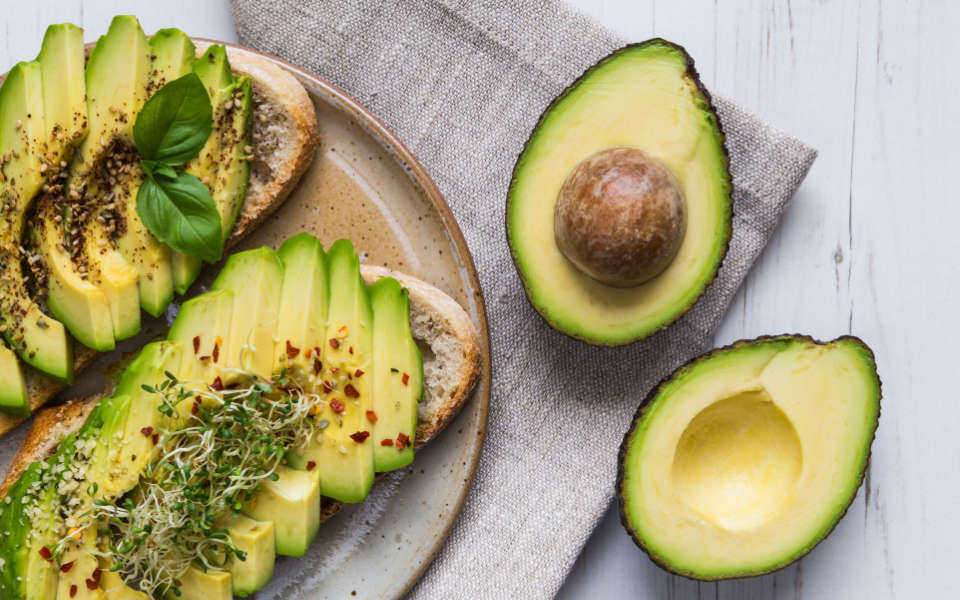
Avocado is a dark green superfood with a large pit found in the centre. The flesh is generally light green in colour with a bumpy exterior.
The avocado originates from south-central Mexico and is a fruit, not a vegetable. Avocados are closer to the berry family than any vegetables and grow on trees in warmer, more humid climates.
What Are The Different Types Of Avocados?
Much to contrary belief, there are many different types of avocados. The characteristics of the different avocados are based on their specific features such as size, colour, taste, and texture depending on where they have been grown and the climate conditions.
There are more than 500 different types of avocados known, but most of them are not commercially sold either due to production issues, nutritional quality, resistance to certain weather conditions as well as durability.
Below we will dissect 10 different types of avocados and what makes each one unique.
1. Hass Avocado
The Hass avocado is the most commonly known avocado and one that is most adored by many consumers. It is dark-green and has a bumpy exterior which is commonly propagated for retail.
It is the type of avocado most commonly found in the grocery store and is available all year round. It is most loved for its buttery and nutty flavour and its versatility in different uses.
2. Choquette Avocado
This creamy and rich avocado is known for its smooth and shiny skin and a mild nutty flavour. It usually grows in the late season and is slightly more watery than the Hass Avocado.
3. Lula Avocado
This avocado is sweeter than its relatives, alongside its natural nutty flavour. It tends to retain water more than the other avocados thus making it more susceptible to fungi. However, it has a higher oil content making it creamier and more delicious than the others.
4. Pinkerton Avocado
The Pinkerton avocados are more elongated than the everyday Hass Avocado with easy-to-peel skin and only slightly pebbled on the exterior. They have a smaller seed than usual but it does not take away from their creamy and rich flavour!
5. Reed Avocado
This is an interesting avocado as it is not typically the same as its avocado counterparts. It is more round and remains the same colour throughout the ripening process.
6. Fuerte Avocado
This pear-shaped avocado is only available 8-months a year and has more of an oily texture compared to the other avocados.
7. Zatano Avocado
The Zatano avocado has a mild flavour and tends to show a light yellow-green colour compared to the usual dark green or purple of most avocados.
8. Sharwil Avocado
The Sharwil, on the other hand, is the complete opposite. This avocado has a very strong and distinct taste with rough green skin and yellow flesh. Unfortunately, the growth of these particular avocados can be stunted by frost in the colder months.
9. Brogden Avocado
This hybrid avocado is dark-purple in nature and is very hard to peel. It is typically not the favourite amongst the avocado family, it is resistant to the cold making it more readily available.
10. Monroe Avocado
The Monroe is firmer in feel and has less watery flesh but is known for its hardiness against the colder environments.
What Are The Nutritional Benefits Of Avocado?
Avocado has a large variety of nutritional benefits, especially for individuals with certain chronic conditions. Contrary to popular belief, avocados are very nutrient-dense and hold many important vitamins and minerals which we need to fuel our bodies.
There are large amounts of fat-soluble nutrients and have more insoluble fibre and protein than any other fruit.
However, it is important to note that the nutritional content of an avocado is dependent on the type, climate, grade of ripening as well as the composition of the soil and fertilisers used to help the tree grow.
Let’s begin with minerals. The mineral content found within these fruits consists of potassium, phosphorus, magnesium, calcium, and sodium. The high content of potassium and low-sodium content benefits those who require a low-sodium diet and may protect them against cardiovascular disease.
Avocados help improve an individual’s overall health and wellbeing due to the relevant vitamins found within them. These include:
- Β-carotene
- Vitamin E
- Retinol
- Ascorbic acid
- Folic acid
- Niacin
- Riboflavin
- Pyridoxine
In addition to their impressive load of vitamins and minerals, the lipid (fat) content of avocados is also seemingly important.
This is because they have larger amounts of oil in relation to other fruits and are rich in polar lipids (glycolipids and phospholipids) which are important in cellular processes that take place within the cell membrane.
The monounsaturated fatty acid content of avocados is also much greater compared to other fruits, which helps those who have high cholesterol levels. These fatty acids work to reduce the blood level of the unbeneficial low-density lipoprotein (LDL) cholesterol and increase high-density lipoprotein (HDL) which is known as the “good” cholesterol.
By incorporating avocados into your meal plan, you have the opportunity to improve your overall diet and quality of life.
What Are The Health Benefits Of Avocado?
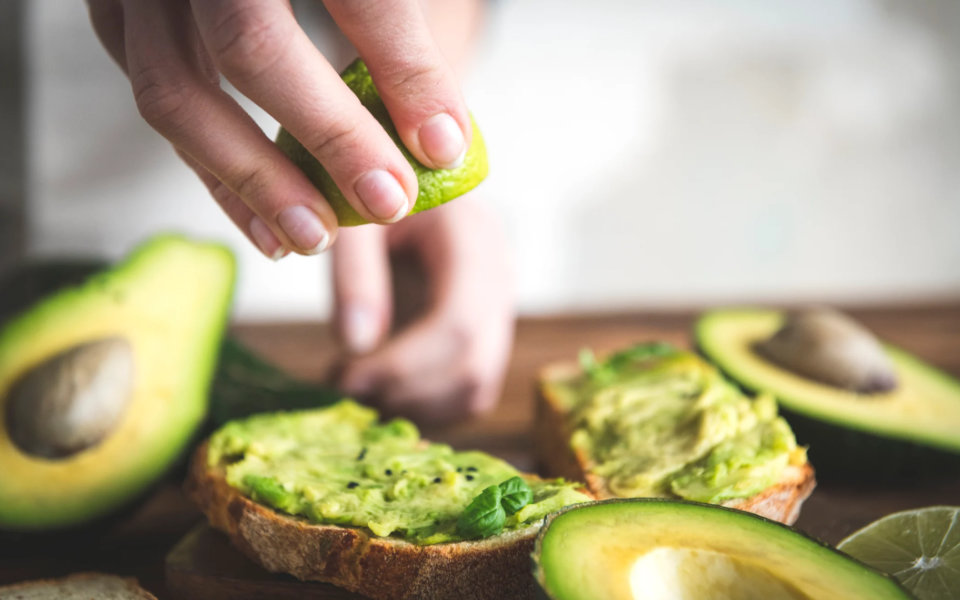
Avocados are not commonly known for their nutritional and health benefits due to inaccurate information, however, they are filled with many important vitamins and minerals essential to maintaining a healthy diet.
Although avocados have picked up a bad reputation for themselves due to inaccurate information, they are highly recommended.
They have been linked to several health benefits including improving digestion, decreasing depression, and protecting the body against cancer.
Below we will have an in-depth look at the wide range of health benefits avocado may have for us.
1. Good For Vision
The phytochemicals found within avocados help provide the eyes with antioxidant protection to reduce the damage caused by UV light.
The specific phytochemicals found in avocados, lutein, and zeaxanthin are present in the eye tissue too, thus increasing the overall protection of the eye.
The aforementioned monounsaturated fatty acids in avocados also help absorb other fat-soluble antioxidants, including beta carotene.
Due to this, incorporating avocados into your diet minimises the risk of developing age-related macular degeneration which is one of the leading causes of blindness in the elderly population.
2. Good For Heart Health
Regularly consuming a sterol called beta-sitosterol will help you maintain appropriate cholesterol levels, which is important for heart health.
For every 100g of avocado you consume, there is 76mg of beta-sitosterol. In addition to cholesterol, avocados also improve blood pressure and triglyceride levels.
3. Certain Components May Help Prevent Cancer
Although clinical trials are yet to be performed to assess the relationship between avocado consumption and a reduction in cancer risk, certain ingredients within avocados may help prevent the onset of certain cancers.
By incorporating folate into your diet, you are minimising your risk of developing colon, stomach, pancreatic, and cervical cancers.
Half of a standard avocado contains approximately 60 mg of folate, which is 15% of the recommended daily intake. However, it is important to note that the mechanism behind this association is unclear.
In addition to the folate, the phytochemicals found in avocados may also have anti-cancer properties and may help reduce cancer progression.
Further research is needed to confirm these associations but it is a step in the right direction.
4. Protects Your Brain
Interestingly, avocados give you a good dose of Vitamin E. Vitamin E has a wide variety of benefits on its own, but it is known for benefiting cognitive health.
Vitamin E can potentially protect you against Alzheimer’s disease and reduce the regression of thinking skills and memory. This may be the result of the antioxidant properties found in Vitamin E which can help fight cell damage.
5. Strengthens Bones And May Help Prevent Osteoporosis
Studies have shown that half of an avocado has an estimated 18% of the recommended daily intake of vitamin K.
This vitamin is pivotal in ensuring bone health by increasing its ability to absorb calcium and decrease the urinary excretion of calcium.
6. Improves Overall Digestion
Part of why avocados are so great is because they are very high in fibre. Incorporating fibre into your diet is an essential component of a healthy diet as it helps keep the gut healthy and decreases the risk of chronic health conditions.
Eating foods that consist of fibre is a great way to increase overall digestion and prevent constipation as well as maintain digestive tract health.
7. Aids In Fetal Health
As mentioned earlier, including folate in your diet has a host of health benefits. Among those benefits is the importance of folate during pregnancy.
One avocado can contain 160mcg. An adequate intake of folate has been known to minimize the risk of neural tube abnormalities and miscarriage. By consuming an estimated 600 micrograms a day when pregnant, you improve the chances of having a healthy, full-term pregnancy.
Avocados are also high in fatty acids which are crucial in fetal development and ensuring a healthy diet.
8. Aids In Weight Loss And Management (Yes, you heard us!)
Many of us have the assumption that avocados cause us to gain weight due to their high-fat content. While the increased fat content compared to other fruits may be true, avocado does help aid in weight loss or to maintain a healthy body weight.
Following a healthy, balanced diet is one of the most important aspects when it comes to reaching and maintaining healthy body weight.
Monounsaturated fat is considered ‘healthy’ fat. By incorporating this into your diet, not only will you be fuller for longer but will also help trim off a few inches due to the healthy fats it contains.
These monounsaturated fats benefit us in more ways than one when it comes to weight management or weight loss.
- Monounsaturated fats are burned at a higher rate than most other fats.
- There is the possibility that monounsaturated fats can increase the rate at which fat is burned.
- These fats could result in burning more calories post-meal.
- Finally, they increase satiety and reduce the desire to eat after a meal.
However, it is important to take note of the fact that these particular effects are not yet well researched and studied, but preliminary results do show good promise.
9. Improves Your Mood
Folate is a source of vitamin B, important for energy and your mood. Those who don’t incorporate enough of this vitamin are more prone to depression. Like it has been mentioned previously, avocados contain a sufficient amount of this vitamin to help boost your mood.
10. Gives You Energy
Finally, these delicious green fruits are jam-packed with the most necessary vitamin B sources to help enhance your energy levels. These specific vitamins (B1, B2, B3) help convert the food you eat into energy, keeping you more fuelled and powered up for longer!
Does Avocado Make You Gain Weight?
The foods you include in your diet play a pivotal role in helping achieve and maintain good health and protecting your body against illness. It is for this reason you should focus on including foods that have a variety of different and beneficial ingredients than direct your focus to just one food and its benefits.
As with most things, eating avocados in moderation is recommended. As we now know, avocados do have a higher fat content than other fruits, so by overeating the necessary intake of avocados, you could gain unwanted weight.
Additionally, avocados also have a good amount of vitamin K, which research states could affect how blood thinners work, such as warfarin.
Those who are on blood thinners should keep their vitamin K levels consistent and level which means you should not excessively increase your vitamin K intake or decrease it drastically either.
What Can Avocado Be Used For?
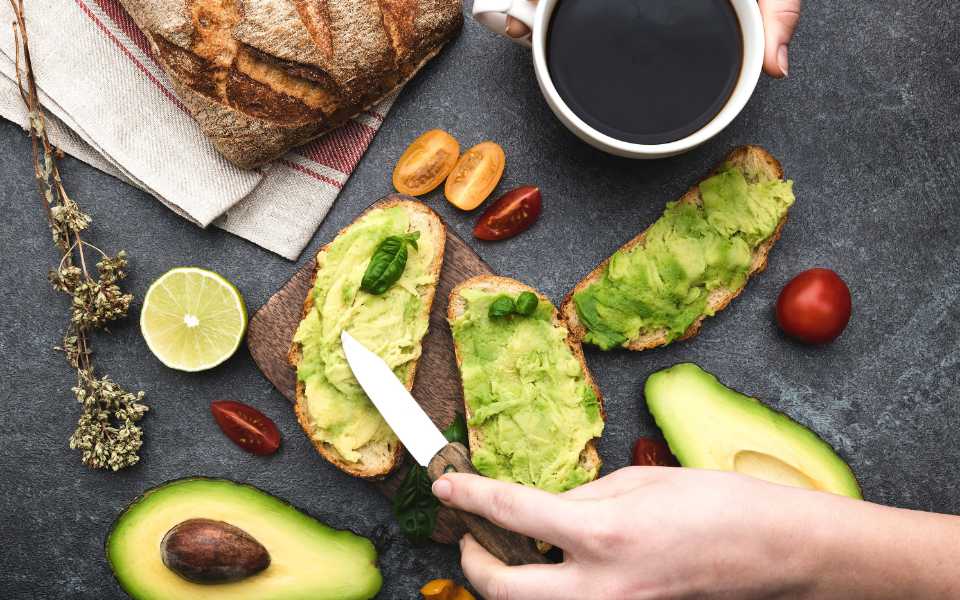
Although we are used to seeing avocado spread on our toast or made into guacamole for nacho night, avocado is one of the most versatile fruits known. The limits to avocados are boundless. Apart from their delicious nutty flavour and creamy texture, avocados are used for many different things around the world.
All in all, this fruit goes well with almost anything. Tossing it into salads, putting it into desserts to make it healthier / more vegan friendly, in addition to having it for breakfast or on a cracker bread with salt and pepper.
1. Avocado Face Masks
Mashing avocado into a fine paste may not seem like the most appealing thing to do in your downtime, but making it into a face mask has many benefits.
It is because of their natural oils and nutrients, avocados help give your skin all the necessary vitamins and minerals it needs for it to flourish!
Avocados also contain an ingredient named lutein, which helps with the elasticity of your skin. In addition, vitamin E can help reduce the fine lines and wrinkles whereas chlorophyll reduces redness and inflammation.
2. Avocado Shampoo And Conditioner
Avocados contain an ingredient named Biotin, which is a vitamin B that helps convert food into energy.
Biotin is important in supporting hair and nail health as well as providing your hair with essential and natural nutrients.
3. Avocado Cooking Oil
Avocado oil can also be used as cooking oil, similar to that olive oil. Providing the body with healthy fats and a variety of vitamins and minerals is needed to maintain a healthy diet.
To hear more about the benefits of avocado oil, continue reading!
What Are The Benefits Of Avocado Oil?
Not only is avocado nutrient-dense and filled with different antioxidants to keep your healthy diet on track, but it can also be incorporated into your skincare routine.
Incorporating avocado oil into your beauty regime is just as easy as tossing it into a salad or using it in some meals for extra flavour. It supports healthy ageing and vibrant skin.
So let’s divulge the benefits of avocado oil:
1. Moisturises And Nourishes The Skin
In addition to the benefits of vitamin E for the skin, avocado oil has a high potassium and lecithin content which helps moisturise and nourish the skin.
The first layer of skin easily absorbs these nutrients which are especially beneficial in forming new skin cells and keeping your skin healthy.
2. It Has The Potential To Reduce Stiffness And Joint Pain From Osteoarthritis
Avocado oil has the potential to reduce pain associated with osteoarthritis and stiffness by minimising the number of molecules linked to joint cartilage discomfort.
3. Supports Eye Health
As discussed previously, lutein is an antioxidant necessary for eye health and support. Increasing lutein content the older you get is essential in minimising your risk of developing eye conditions such as cataracts and macular degeneration.
4. Promotes Healthy Skin
Vitamins A and E, which are found within avocado oil have been linked to improving skin membranes and making them stronger. This is also crucial in protecting the skin against UV rays from the sun, quickening the healing processes, and decreasing inflammation.
5. May Minimise The Effects Of Psoriasis
The antioxidants, vitamins, and minerals found within avocado oil aid in healing dry, itchy, irritated and cracked skin – symptoms associated with psoriasis and even eczema.
Side-effects to avocado oil are rare, but it is not to say it won’t happen. Whether it may be an allergic reaction or irritation, it is best to test it over 24 hours. You can do this by testing a patch of skin before slathering the oil on different parts of your body.
If you are allergic to avocados, it is best to stay away from avocado oil as a whole.
What Are The Benefits Of An Avocado Face Mask?
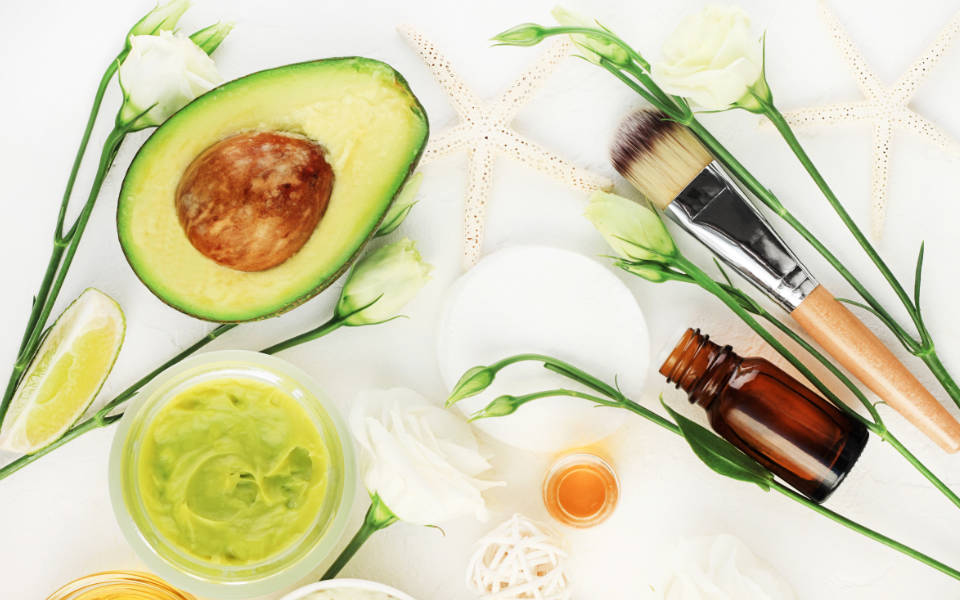
Yes, avocados are filled with fatty acids but this does not mean that they have the potential to clog your pores. As briefly mentioned earlier, avocados are a brilliant ingredient to start incorporating into your beauty regime.
Avocado has been known to reduce sebum oil production of the skin which is generally produced when our skin is already dry which in turn, clogs our pores.
Because avocado is a moisturising and nourishing ingredient for the skin, it can aid in sebum production to go into overdrive.
Avocado face masks help with the following:
- Reduce the appearance of wrinkles and fine lines.
- Help give you a smoother complexion.
- And ease sensitive skin and redness.
Additionally, avocado oil boosts collagen production which is essential in helping the skin maintain its elasticity.
How Many Avocados Can I Eat In A Day?
Before deciding how many avocados one can eat, there are a few factors that should be taken into consideration. You have to look at what your dietary goals are in terms of your weight. Additionally, your current weight, body time, and activity level all place a pivotal role in the decision process too.
Keeping in mind that avocados aren’t low in calories, they are high in healthy monounsaturated fats which keep you fuller for longer, thus overdoing it and eating an obscene amount of avocados within a day probably won’t happen because you will be too full.
So if you were wondering if they will sabotage your weight-loss journey, the simple answer is no.
Researchers have found that eating an avocado a day is important for your heart health. It is mentioned that avocados protect the heart in a similar way to a healthy-heart Mediterranean diet.
In 2018, a study found that consuming 1-3 avocados a day improves HDL cholesterol. The high content of monounsaturated fats and potassium are all important for cardiovascular health.
It is recommended that 1 whole avocado is an appropriate amount to have a day. Be sure not to make avocados your only source of healthy fat.
It can be found in many other foods too which will help you maintain a healthy diet, giving your body everything it needs to function.
Conclusion
As we are now aware, avocados should not be seen in a negative light. They are delicious, healthy and a great source of healthy fat – even when you are trying to lose or maintain your weight.
From using it for meals to making facemasks, this nutrient-dense, antioxidant-rich fruit can be used in a variety of ways and still hold so many benefits.
With all that aside, incorporating avocados into your diet can help reduce symptoms of certain chronic conditions such as osteoarthritis and may even provide the chance to minimise or prevent certain cancers.
However, it is important to note that these statements have not been fully researched and still require clinically-based trials.


